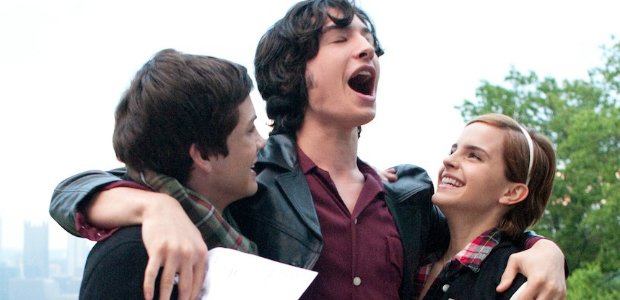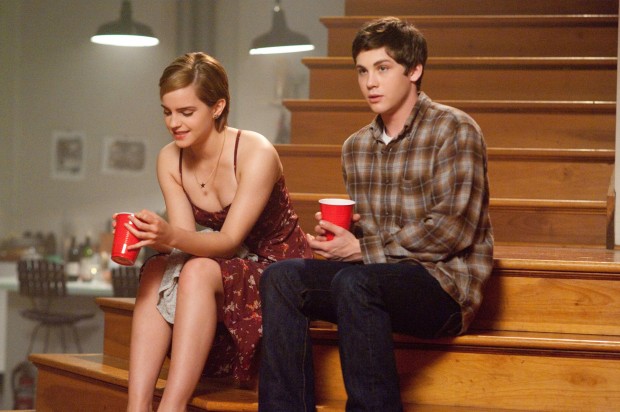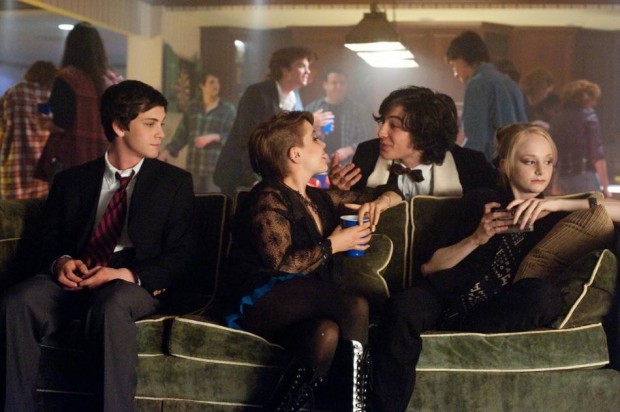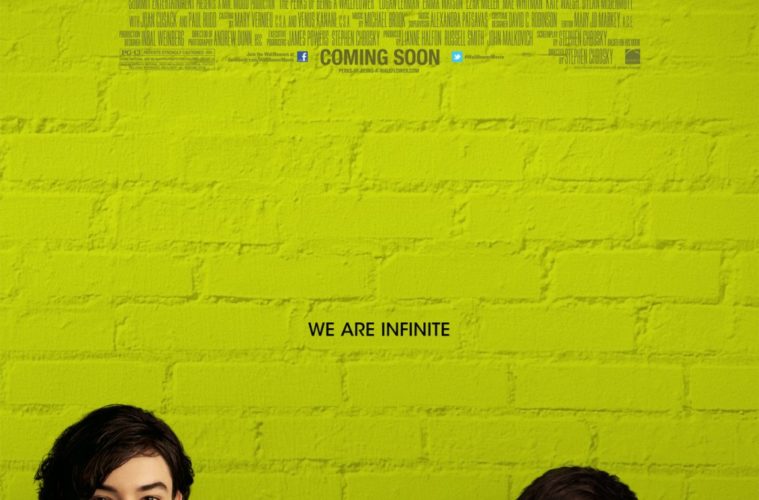There is nothing more important to a teenager than everything. It’s the sly trick when making a high school movie: the stakes are already built in. That’s why you can (theoretically) sustain a film like PROM based solely on the emotional toll of rejection. It’s as emotionally devastating as any bomb Bane could unleash on Gotham. Then the next week comes and with it a new problem to worry about endlessly. It’s a harrowing roller coaster regardless of what’s actually going on in your life.
That’s part of what makes The Perks of Being A Wallflower such a monumental work. Not only are the usual tropes of surviving adolescence involved, but they are merely a base for a number of adult issues that are thrust upon our teenage heroes. This is no doubt aided by the auteurship of Stephen Chbosky, a man who earns the lofty title by adapting and directing the film based off of his own semi-autobiographical novel of the same name. Saying “this is a personal film” almost seems disingenuous. This is the work of a person who’s been through some heavy shit.

The novel was written as a series of letters detailing the life and times of Charlie, a newly-minted high school freshman who carries a heavy past. The film uses this device, but mostly allows Logan Lerman, the filmic Charlie, to carry that emotional burden on his shoulders in every frame. He’s an otherwise handsome young gen, but one look into his eyes is enough to warn his peers to stay away. One wonders if they would be a bit more accommodating if they knew that his best friend committed suicide the previous summer. This compounds a steady stream of flashbacks of his Aunt Ellen, an important figure in his life, who passed away. Never mind that it was on his birthday, hovering so close to Christmas that even the small incandescence of icicle lights fill the boy with dread. On his first day of school, he makes one friend: his English teacher, played to an idyllic glory by Paul Rudd. Charlie’s acutely aware of how sad that is.
It’s not long until Charlie happens upon a group that readily accepts him, probably more than he accepts himself. There’s Patrick (Ezra Miller), the lone senior in Charlie’s shop class that’s as extroverted as Charlie’s introverted. He has a half-sister, Sam (Emma Watson), adorned in a pixie haircut to match her love for The Pixies, befitting a cool girl in early 90’s Pittsburgh. Her introduction is framed against the backdrop of the bright football field lights, giving her an angelic air that stays with her through the film. No wonder that Charlie falls instantly in love. This group is rounded out by the punk/vegan/Buddhist Mary-Elizabeth (Mae Whitman), who begins to pine for Charlie the way he so desperately does for Sam.

I’ve set the table here, but I won’t spoil the main course. There are too many sumptuous bits to enjoy. But I’ll toss you some appetizers. This is a fantastic cast, all of whom play their characters with the kind of earnestness that you see in teenagers but they don’t want to see in themselves. Miller gives a star-making turn as Patrick, the kind of kid who gives you a whole lot of himself so you wouldn’t ask about the stuff he chooses to keep close to the vest. Notice how he looks at Brad (Johnny Simmons) the star quarterback, or the regard he has for Charlie, the young aspiring writer whom he gives the proper clothes and mind-altering substances. See the grace with which Emma Watson accepts Charlie’s mixtape, loving him in one way enough to gently accept the gift while trying to show that she doesn’t reciprocate love in another way. It’s all tied together by Lerman, a kid haunted by the past who finds the future all too daunting. With each small connection made, or revelation earned, he adds to a project that will surely continue long after the credits roll.
It’s a pleasure to see these kids play such a graceful tennis match with these emotional hand grenades. The film is filled to the brim with difficult subjects, including (but not limited to): closeted homosexuality, homophobia, depression, suicide, abuse of women, drug use, and heartbreak. Lots and lots of heartbreak. These are the kinds of topics that would make an adult too removed from teenagerdom blush but are all too real on the front lines of high school life. This is a bottom-up view of emerging adulthood, all the more realized by the subjective view of Chbosky‘s camera. The lighting from cinematographer Andrew Dunn and gaffer Patrick Murray beautifully captures the emotional waves: the lights are just a bit too bright, the darkness covers everything. It’s amazing how dramatic natural lighting can be if you feel it in a certain way.

This is an evocative film, one that makes you feel every bit of it. If you’re older, you’ll remember the dramatic ebbs and flows of adolescence, even if your actions didn’t match up directly with that of the cast’s (and I personally hope yours didn’t). It’s the kind of movie I wish I had as a high schooler, as She’s All That didn’t really bolster my emotional fortitude. Wallflower does receive demerits for the neutron bomb located just at the tail end of the film. It’s well-built by all that proceeds it, but this is the kind of reveal that deserves more time to resolve itself, not sandwiched between the end of the main story and jutted up against the closing credits. But by the time David Bowie’s “Heroes” blasts through the theater, you probably won’t mind.
The Perks of Being a Wallflower is screening at TIFF and opens on September 21st.


